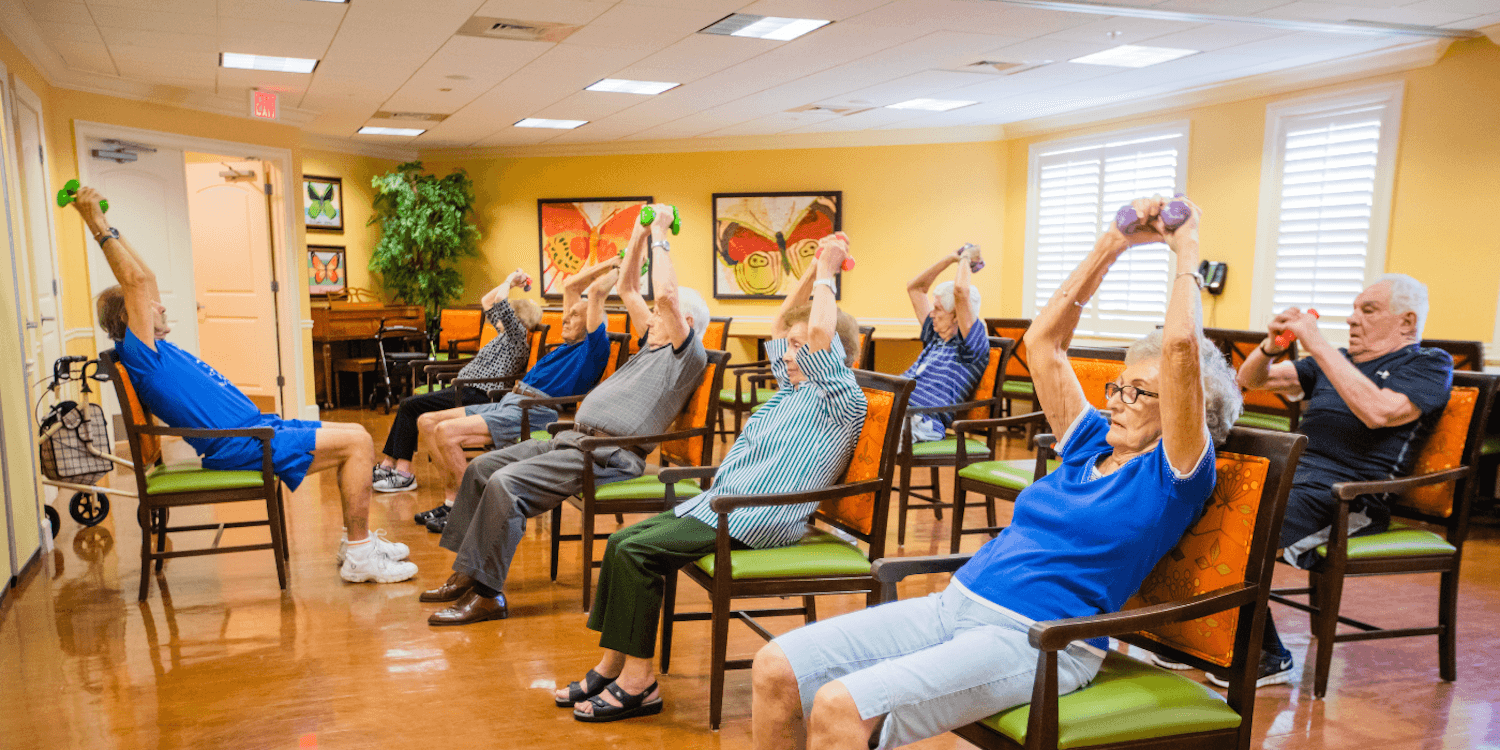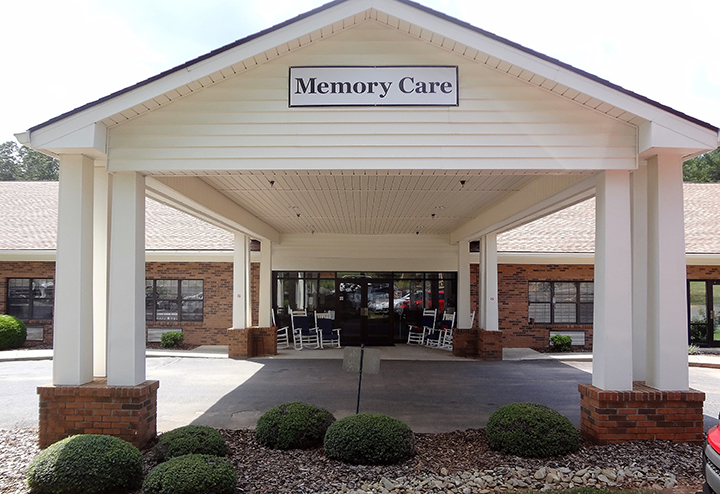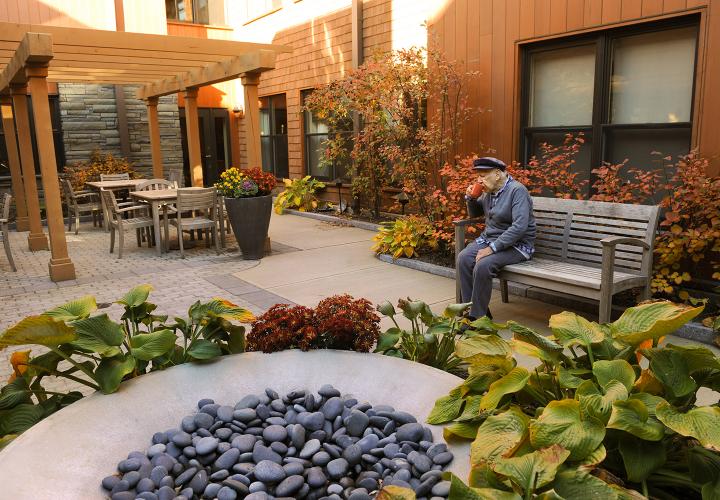Thoughtful Teams Providing Relied On Alzheimers Care Charlotte Options
Thoughtful Teams Providing Relied On Alzheimers Care Charlotte Options
Blog Article
Producing a Safe and Helpful Environment for Alzheimer's Treatment
The development of a helpful and secure atmosphere for people with Alzheimer's is vital in enhancing their top quality of life. This includes not just physical adaptations within the home, such as minimizing dangers and incorporating acquainted elements, however also the application of structured routines and purposeful activities that accommodate their cognitive needs. Understanding the psychological and emotional measurements of treatment can considerably influence their feeling of safety and security and link. Discovering these multifaceted techniques can disclose crucial understandings right into reliable caregiving techniques that may change the day-to-day experiences of both patients and caregivers.
Comprehending Alzheimer's Requirements
Regularly, people with Alzheimer's illness display a variety of requirements that need tailored approaches to care. As the problem proceeds, cognitive decrease materializes in different methods, affecting memory, reasoning, and even the capacity to execute day-to-day tasks. Caregivers should acknowledge these developing needs to provide appropriate support and make certain a greater high quality of life for those impacted.
One vital element of comprehending Alzheimer's needs is identifying the value of routine and familiarity. People commonly discover comfort in well-known patterns, which can lower stress and anxiety and confusion. Caretakers must strive to develop organized daily timetables that integrate meaningful tasks lined up with the person's abilities and passions.
Furthermore, reliable communication is critical. People with Alzheimer's may struggle to share themselves or comprehend complicated language. Caretakers need to use basic, clear language, usage non-verbal hints, and practice energetic listening to cultivate understanding and connection.
Lastly, psychological and social requirements can not be neglected. Giving opportunities for social interaction and keeping partnerships can dramatically enhance psychological health. Caregivers need to encourage interaction in community activities or family members gatherings, promoting a feeling of belonging and objective. Understanding these varied demands is vital for developing an encouraging treatment setting.
Creating a Safe Home
Producing a risk-free home for individuals with Alzheimer's illness is important to promoting and reducing risks independence. The design of the living space should prioritize safety and security while enabling individual convenience. Initially, eliminate potential hazards such as loosened carpets, sharp items, and clutter, which can lead to drops or crashes. Guarantee that pathways are well-lit and clear, as appropriate illumination reduces disorientation and boosts wheelchair.
Integrating flexible functions is also critical. Set up grab bars in bathrooms and near stairways, and consider utilizing non-slip mats in damp locations. Furthermore, making use of contrasting shades for walls and floorings can aid in distinguishing areas, helping to alleviate confusion.
Experience is necessary for individuals with Alzheimer's. Individualizing the atmosphere with acquainted objects and photos can reinforce a sense of belonging and security - Alzheimers Care Charlotte. It is likewise valuable to have an assigned location for daily activities, such as analysis or crafting, which can provide structure to their day
Finally, applying a protected outside room permits risk-free expedition while attaching with nature. By thoughtfully developing the home atmosphere, caretakers can significantly enhance the high quality of life for people coping with Alzheimer's disease.
Enhancing Communication Abilities

Non-verbal interaction, consisting of faces, gestures, and touch, plays a critical role in conveying empathy and understanding. Preserving eye contact and a tranquil attitude can enhance the comfort level of the individual, promoting a feeling of safety.
In addition, it is very important to exercise active listening. This entails being completely present, revealing persistence, and allowing the individual to reveal themselves without disturbance. Rep might be necessary; caretakers ought to be prepared to revisit inquiries or topics, as people with Alzheimer's may deal with memory recall.
Furthermore, using aesthetic help or hints, such as photographs or familiar things, can assist in acknowledgment and interaction. Inevitably, improving interaction skills has to do with building trust fund and creating a setting where individuals feel listened to, valued, and understood, therefore enriching their high quality of life.
Encouraging Social Interaction
Cultivating meaningful social interactions can greatly improve the health of individuals with Alzheimer's illness. Involving with others not just helps fight feelings of isolation yet likewise boosts cognitive function and emotional wellness. Structured social tasks, such as group crafts, games and arts, or songs treatment, create opportunities for locals to connect with peers and caretakers, which can cause enhanced mood and reduced stress and anxiety.
Producing a welcoming atmosphere that motivates socialization is vital. This can be accomplished by organizing public areas that assist in communication, such as comfy seating locations or task areas. In addition, incorporating familiar and culturally relevant activities can encourage and spark memories participation, enabling individuals with Alzheimer's to feel more connected to their past experiences.
Furthermore, caretakers must be trained to recognize and advertise social interaction amongst citizens. By prioritizing social communication, we can substantially enhance the lives of those living with Alzheimer's, fostering a sense of area and belonging.
Sustaining Caregiver Well-being

To support caregivers, organizations need to offer normal training and instructional sources to boost their understanding of Alzheimer's condition and caregiving strategies. Supplying accessibility to reprieve care services allows why not look here caregivers to take needed breaks, lowering stress and fatigue - Alzheimers Care Charlotte. Furthermore, promoting an area via support system can facilitate psychological sharing and the exchange of practical guidance among caregivers, producing a network of shared support
Mental health resources, such as counseling services, can also be vital in dealing with the emotional toll caregiving can take. By prioritizing caregiver well-being, we create an even more lasting caregiving setting that not just benefits the caregivers themselves but also boosts the total top quality of treatment gotten by individuals with Alzheimer's. Ultimately, sustaining caretakers is an essential part in cultivating a efficient and compassionate treatment setup.
Final Thought
Finally, the creation of a secure and helpful setting for individuals with Alzheimer's is vital to boosting their lifestyle. By prioritizing safety through thoughtful design, promoting psychological well-being with familiar components, and advertising engagement via structured regimens, caretakers can considerably impact the total experience of those affected by this condition. Sustaining caregiver health is vital, as it ultimately adds to a more efficient and thoughtful treatment setting.
Repeating might be required; caretakers ought to be prepared to take another look at topics or inquiries, as people with Alzheimer's may battle with memory recall.

Report this page